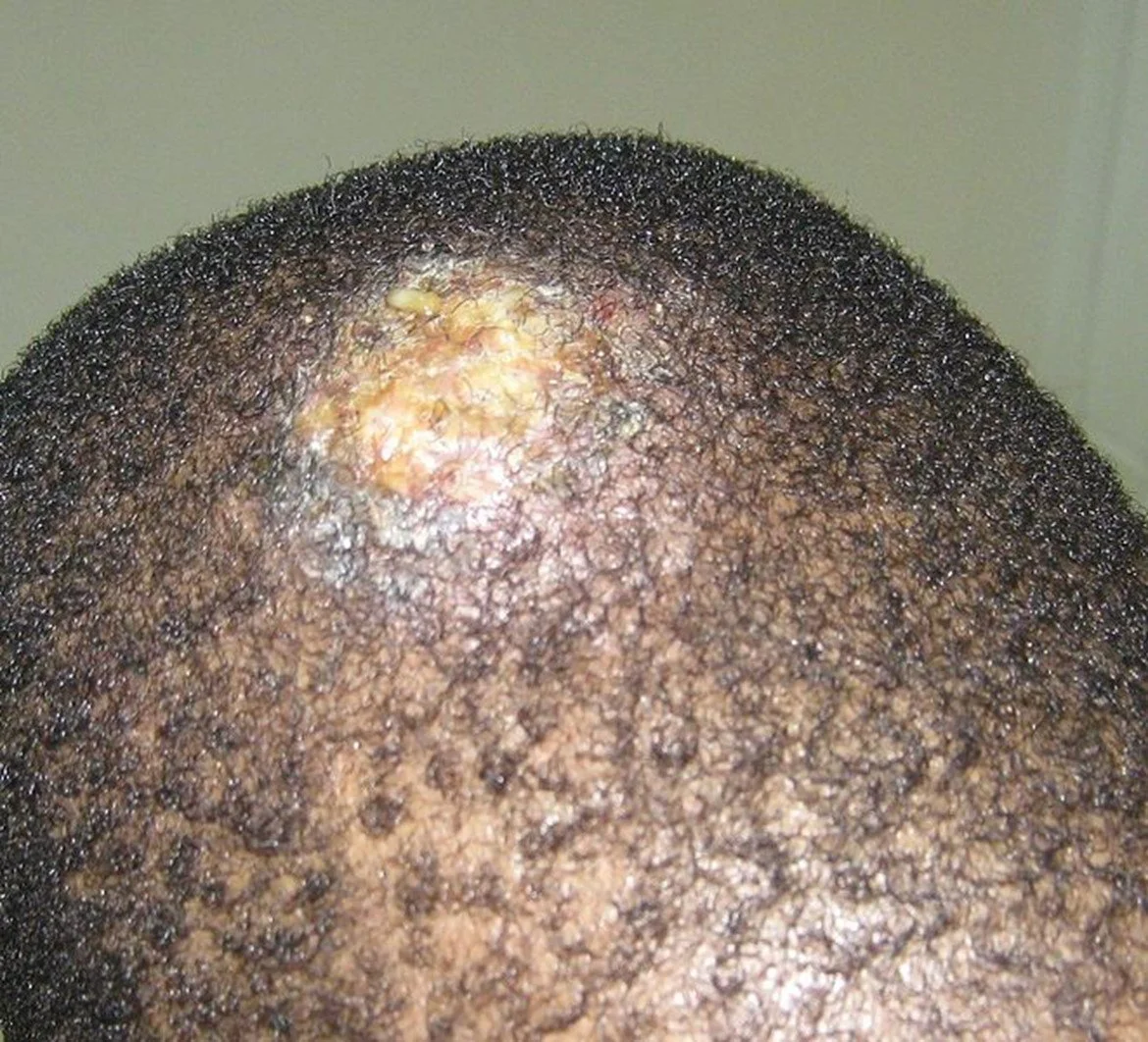Tinea Capitis (ringworm)
Overview:
Tinea capitis, also known as ringworm of the scalp, is a fungal infection that affects the scalp. It is caused by a type of fungus called dermatophytes. These fungi thrive in warm, moist environments. Tinea capitis often affects children who are in close contact with others at school or daycare but can affect people of any age. Symptoms of tinea capitis include itching, scaling, and hair loss. The infection can be diagnosed through physical examination and laboratory tests. Treatment typically involves using antifungal medications either orally or topically. Prognosis is generally good if the infection is treated early, however, in advanced staging scarring can cause more permanent hair loss.
Causes:
Tinea capitis is caused by a type of fungus called dermatophytes. These fungi are usually found in soil, on animals, or on humans. They thrive in warm, moist environments. The fungi can spread from person to person through close contact, such as sharing hats or brushes. They can also spread through contaminated items, such as combs or towels.
Symptoms:
Symptoms of tinea capitis include itching, scaling, and hair loss. The infection may also cause fever and swollen lymph nodes. The symptoms typically appear 2-4 weeks after exposure to the fungus.
Source: https://commons.wikimedia.org/wiki/File:Teigne_-_Tinea_capitis.jpg
myself, CC BY-SA 4.0 <https://creativecommons.org/licenses/by-sa/4.0>, via Wikimedia Commons
Source: https://commons.wikimedia.org/wiki/File:K%C3%A9rion_01.jpg
License: Grook da oger, CC BY-SA 4.0 <https://creativecommons.org/licenses/by-sa/4.0>, via Wikimedia Commons
Diagnosis:
Tinea capitis is typically diagnosed through physical examination and laboratory tests. Physical examination may reveal scaling, bald patches, or broken hairs. Laboratory tests including KOH scaping in office and biopsy with staining may be used to confirm the diagnosis and identify the type of fungus causing the infection.
Treatment:
Treatment for tinea capitis typically involves using antifungal medications either orally or topically. Oral antifungal medications are taken for 4-6 weeks. Topical antifungals are applied to the scalp and usually need to be used for 2-4 weeks. In severe cases, a combination of oral and topical antifungals may be necessary.
Prognosis:
Prognosis is generally good if tinea capitis is treated early. However, in advanced stages, scarring can cause more permanent hair loss. If hair does not regrow after 6 to 12 months a hair transplant can be considered into focal patches of hair loss.
Source: https://www.flickr.com/photos/iem-student/30966925098
License: Attribution-NonCommercial-ShareAlike 2.0 Generic (CC BY-NC-SA 2.0)


